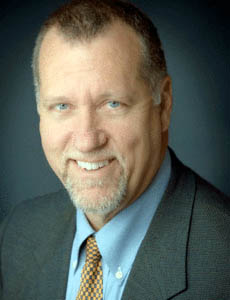Your Estate … with James Ward: Is your estate money safe — or will your bank help the scammers?
“Is your bank protecting you? Are your bank accounts secure?”
![]()
By James Ward

James Ward
 California recently ranked 48 out of 51 for elder abuse protections. (51 is the 50 states plus the District of Columbia.)
California recently ranked 48 out of 51 for elder abuse protections. (51 is the 50 states plus the District of Columbia.)
Wow! Not so good for our seniors. We’re at the bottom of the rankings.
Elder abuse — physical, mental, and financial — is on the rise. Some attribute the recent spike to seniors isolated during the pandemic, but abuse and theft and crime have been around since early mankind. Adults stealing from their siblings and parents is not new, but it does seem to be on the rise.
But what about financial theft via electronic means and scammers? This isn’t new-new as if you’ve never heard of it before, but it is “newish” in our society, and certainly on the rise.
We’ve all heard of people giving out personal information in error, or credit card information being stolen, but what about the money in your bank? Is that safe? Is your bank protecting you? Are your bank accounts secure?
 You likely remember when Microsoft software was being hacked regularly 20 years ago or so because there were flaws.
You likely remember when Microsoft software was being hacked regularly 20 years ago or so because there were flaws.
One new flaw even surfaced in the past few weeks. Why Microsoft? Well, they are one of the largest providers of software, so if a hacker can find a way into their programs, there are millions of users with the same programs.
A client recently came to me after his bank accounts were hacked. He had banked for 40 years or so at a major national bank, and he felt his accounts were secure. And, no, he’s not of weak mind. He’s in his very early 70s and has a fully functioning mind. Well, he tried to get a refund for something he had purchased, and the provider asked him to enter the $200 amount to get the refund.
 Then, they claimed he had entered the wrong amount and their system gave him $20,000, so now he had to return it to them or they would sue him. Being a cooperative guy, he logged on to their website to fix the error, and during the next few weeks, the scammers drained his accounts of $150,000! It seems incredible, but now his bank is claiming he took the money from his own accounts, including his credit line, and he has to pay back his credit line. But he never gave any account information or pass codes to anyone.
Then, they claimed he had entered the wrong amount and their system gave him $20,000, so now he had to return it to them or they would sue him. Being a cooperative guy, he logged on to their website to fix the error, and during the next few weeks, the scammers drained his accounts of $150,000! It seems incredible, but now his bank is claiming he took the money from his own accounts, including his credit line, and he has to pay back his credit line. But he never gave any account information or pass codes to anyone.
Who’s the bandit here?
It appears the scammers knew the ins and outs of this national bank’s computer systems, and they drained account after account and the bank kept pouring more money into his accounts through his credit line, and the scammers kept pulling it out. Wow!
It also appears the bank had no alerts or controls on their system, even though we think the money was all being transferred directly overseas.
The client keeps getting denial after denial that the bank is responsible for this, but why don’t they have security measures to protect their customers?
Just like Microsoft has millions of customers who use the same software, this bank has millions of customers who use their banking platform. If a scammer knows the inner workings of their system, it appears they can run wild inside the bank’s systems without being stopped or caught. It’s incredible this could happen. But the bank is a big target for scammers, and it appears the bank hasn’t done enough to protect their customers.
My solution? My family is removing all of our accounts from this national bank for our safety.
- Your Estate … with James Ward: Check your property title form of ownership to avoid ambiguity or confusion - March 30, 2024
- Your Estate … with James Ward: Department of Public Health warns nursing homes on discrimination - March 9, 2024
- Your Estate … with James Ward: Check out the various charities before making any donations - February 9, 2024
